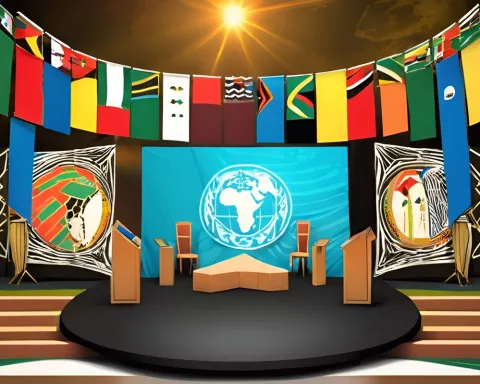South African President Cyril Ramaphosa has emphasized the importance of a just energy transition in achieving a sustainable and equitable future. In a recent round table discussion during the Summit for a New Global Financing Pact, President Ramaphosa shared key lessons learned from South Africa’s journey towards a low-carbon economy and highlighted the need for long-term partnerships tailored to each nation’s unique challenges.
The Just Energy Transition Investment Plan
South Africa’s Just Energy Transition Investment Plan, announced in November 2021, aims to facilitate the nation’s move towards a low-carbon economy and a climate-resilient society. The plan requires an estimated $98 billion in financing, with an initial commitment of $8.5 billion from France, Germany, the United Kingdom, the United States, and the European Union.
The investment plan encompasses various initiatives, including investments in electricity infrastructure, support for communities and workers in coal mining areas, new energy vehicles, green hydrogen, and skills development.
Key Lessons Learned
President Ramaphosa highlighted five crucial lessons learned during South Africa’s just energy transition process, which can serve as guiding principles for other nations undergoing a similar transition:
-
Country-led and -owned partnerships: A just energy transition must be tailored to each nation’s unique challenges.
-
Emphasis on the ‘just’ component: Nations must clearly define what they consider ‘just’ in terms of social impact, evident in the investment plan’s structure and the corresponding financing package.
-
Flexibility is key: Countries should have the autonomy to decide on a transition pathway that considers development objectives such as energy security.
-
Tangible financial support: Financial assistance must be provided at a scale that recognizes the developmental level of countries and the magnitude of the required transition.
-
Support for green industrialization: The transition process should facilitate the transfer of technology and skills, enabling countries to embrace sustainable growth and development.
The Importance of Long-Term Partnerships
President Ramaphosa emphasized the importance of long-term partnerships that can provide the necessary support for developing economies as they transition towards a greener future. These partnerships should be adaptable and responsive to the unique challenges faced by each nation, ensuring a just and equitable shift towards a more sustainable world.
The Need for Increased Financial Support
While South Africa has made significant strides in its just energy transition, the nation requires increased financial support to realize its ambitious goals fully. The current commitment of $8.5 billion falls far short of the estimated $98 billion needed for a meaningful and just transition. As nations across the globe seek to address climate change and promote sustainable development, it is crucial to ensure that the transition process is inclusive, equitable, and tailored to the specific needs of each country.
President Cyril Ramaphosa’s insights during the Summit for a New Global Financing Pact offer valuable guidance for countries embarking on their journey towards a just energy transition. By prioritizing country ownership, social impact, flexibility, financial support, and green industrialization, nations can work together to tackle the pressing challenges of climate change and pave the way for a more sustainable and equitable future.












